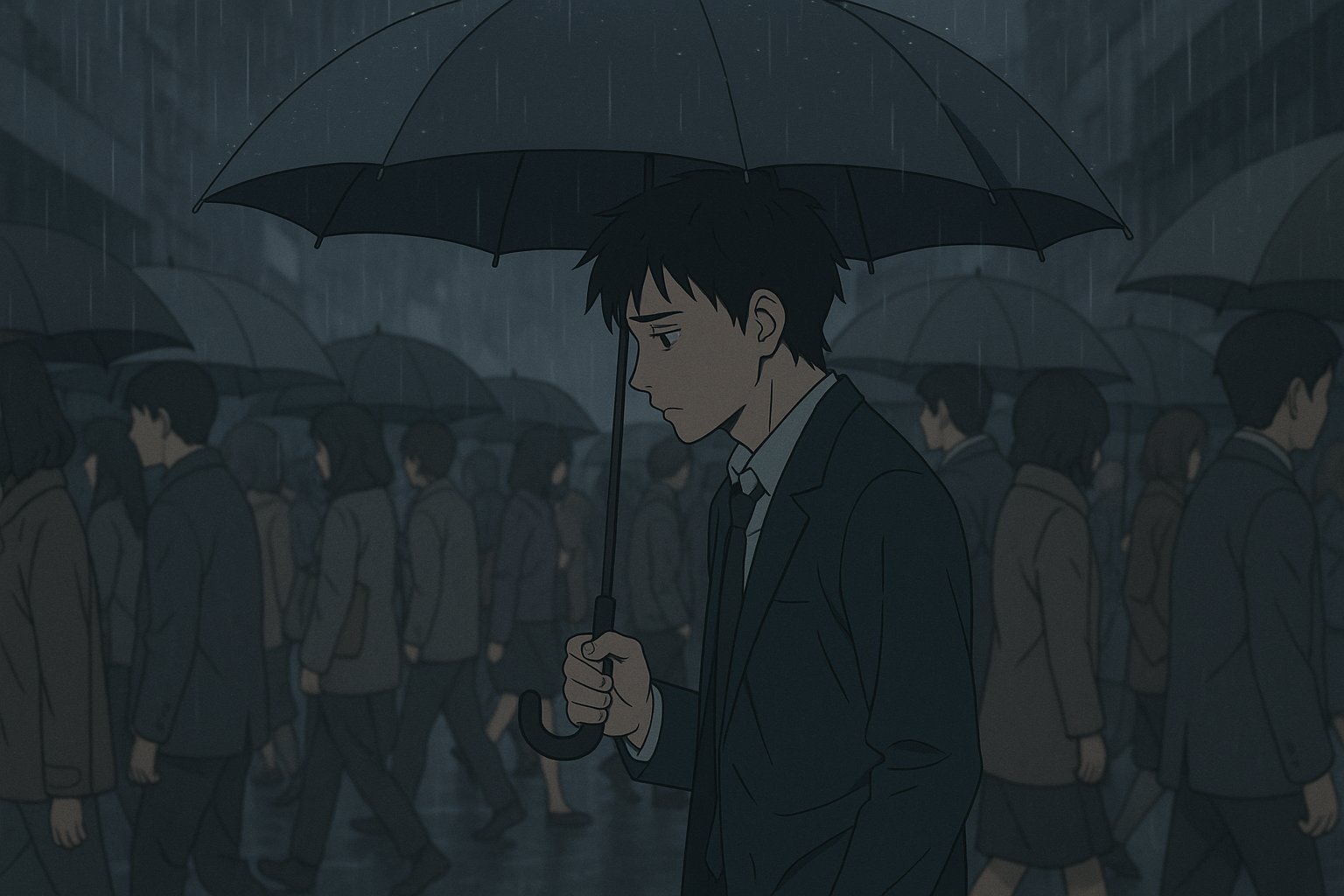by Darine Ammache, Clinical Psychologist, and Maria Keyrouz, Clinical Psychologist and Psychotherapist
In a world that celebrates vulnerability… just not from men… there’s a silent epidemic growing louder behind closed doors. Male loneliness is not a vague mood or an occasional bad day; it’s a widespread, deeply rooted crisis. Globally, 1 in 4 men report feeling chronically lonely. In the MENA region, the numbers may be even higher, driven by cultural expectations, stigma, and the quiet burden of being “the strong one.”
And yet, despite the scale of the problem, empathy for lonely men seems to be in short supply.
Why?
From the moment boys are taught to “man up,” the rules are clear: be tough, stay silent, don’t show weakness. Emotions, especially those that hint at pain or vulnerability, are seen as liabilities. In Eastern societies, where traditional gender roles and religious norms remain strong, these unspoken rules are even more rigid.
Men are expected to lead, provide, protect, and do it all without flinching. The result? Emotional disconnection becomes the norm. The message isn’t just that you can’t talk about loneliness—it’s that you shouldn’t even feel it in the first place.
And when men do try to speak up? They’re often met with mockery, dismissal, or cold indifference.
The Power Paradox
Look, we get it…it’s hard to feel bad for someone who seems to be holding all the cards. In many parts of the world, men still dominate politics, business, and religious spaces. They often earn more, have more rights in legal matters like divorce, and are statistically more likely to be in leadership roles.
But emotional well-being doesn’t follow the same rules as institutional power. Just because someone has status doesn’t mean they feel connected, loved, or even seen.
And yet, that status becomes the reason many people lack sympathy.
“He’s a man. He’ll be fine.”
But what if he’s not?
The Double Standard of Empathy
We’re living in a cultural moment where calling out toxic behavior, especially from men, is being rightfully amplified. Social media trends like TikTok’s “Man of the Year” expose emotional abuse and give women the space to reclaim power. These movements are important. They’re needed.
But there’s a dangerous side effect when collective accountability turns into blanket dehumanization.
When men try to talk about their loneliness online, it’s not uncommon to see replies like:
- “You deserve it.”
- “Maybe if men were better.”
- “Cry me a river.”
This dismissiveness shuts down real conversations before they can even begin. It also creates a false choice as if we can only care about one kind of suffering at a time.
But healing is not a zero-sum game.
Even Among Men, Vulnerability Is a Risk
One of the most painful layers of this epidemic is that men are often the first to tear each other down for showing emotion. Vulnerability is frequently seen as a feminine trait…something soft, weak, or shameful.
And because femininity is still devalued in many spaces, emotional expression in men is mocked, dismissed, or labeled as dramatic.
“You’re acting like a girl.”
“Grow up.”
“Don’t be so emotional.”
This isn’t just about silence, it’s also about punishment. The men who need connection the most are often met with jokes, coldness, or rejection by their own peers.
So they stop talking. They stop reaching out. And the loneliness deepens.
Narcissism or Survival Mode?
A common critique of lonely men is that they’re emotionally unavailable or self-centered. And yes, some are. But what if the narcissism we see is more like armor crafted over years of being told that emotions make you weak?
In cultures where vulnerability is punished, what survives is performance: stoicism, success, control. But beneath that performance, many men are starving for connection.
It’s not always that men don’t care. Sometimes, they’ve just never been taught how to show it.
A Call for Balance, Not Blame
This isn’t about silencing women’s stories. It’s about expanding the conversation to include all emotional pain without shame, without mockery, and without drawing battle lines between genders.
We can challenge toxic masculinity while also creating room for male vulnerability.
We can support women who’ve been hurt and still hold space for men who are hurting.
Empathy doesn’t run out when you offer it to more people.
So, What Needs to Change?
- Safe spaces for men to talk without being shamed or judged.
- Cultural narratives that make emotional openness, not emotional suppression, a sign of strength.
- Social media that encourages honest conversation, not just highlight reels or callouts.
- Mental health access that doesn’t leave men out of the conversation or treat their pain as less valid.
So, loneliness is not a male problem. It’s a human one. But the way we talk or don’t talk about male loneliness says something deeper about what we value, who we listen to, and whose pain we think matters.
We don’t need less empathy for women.
We need more empathy for everyone.
Because no one—man or woman—should have to cry alone in a world that claims to care.
